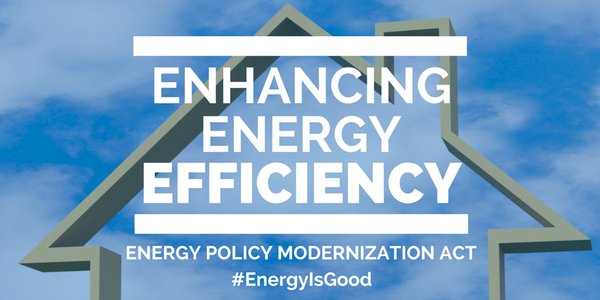By: Emma Green
The U.S. Senate saw its first bipartisan energy bill since 2007 pass last month in a landslide vote of 85 to 12.
The Energy Policy Modernization Act, as bill S. 2012 is known, was the result of  work from the Republican Alaskan Senator Lisa Murkowsi and the Democratic Washington Senator Maria Cantwell. Some stipulations of the bill are to “promote renewable energy, improve the energy efficiency of buildings and to cut some planet-warming greenhouse gas pollution,” according to The New York Times.
work from the Republican Alaskan Senator Lisa Murkowsi and the Democratic Washington Senator Maria Cantwell. Some stipulations of the bill are to “promote renewable energy, improve the energy efficiency of buildings and to cut some planet-warming greenhouse gas pollution,” according to The New York Times.
In addition, the bill “will push us toward cleaner, more efficient, more cost-effective and renewable energy sources,” Sen. Cantwell said.
The bill would also encourage domestic energy production if passed. The Energy Department would expedite the permitting process for natural gas, enabling fossil fuel producers to export their goods more quickly.
“Allowing American gas to compete in the world marketplace will benefit consumers, enhance our national security interests and bolster our global allies’ independence from nations that would use their energy resources as a diplomatic and economic weapon,” said Jack Gerard, the president of the American Petroleum Institute.
While that is a step in the right direction for the U.S. economy, it may galvanize energy producers to find more oil and gas through fracking, which would be a devastating blow to environmental groups.
However, a big boon to businesses looking for more sustainable power is the bill’s provisions for energy efficiency in buildings.
The bill includes sections on a Weatherization Assistance Program, certification for green buildings and energy-saving information technologies, meaning the nation is looking toward a greener future.
Many Democrats are thrilled with the bill’s passage, such as Energy and Commerce Ranking Member Frank Pallone, Jr., a representative from New Jersey who will see the bill through the House. Pallone said he is excited to help “construct a bipartisan bill that embraces the continued development of a sustainable clean energy economy that can be signed by the President.”
Responses to the bill from sustainable businesses are mixed, however, with praise from the U.S. Chamber of Commerce and the Alliance to Save Energy and scorn from 350.org and the League of Conservation Voters.
Approval also came from Composite Recycling Technology Center CEO Bob Larsen when he described the bill as “a comprehensive package of visionary energy legislation that strengths the nation’s move towards a sustainable energy future.”
Sara Chieffo, the League of Conservation Voters’ vice president for government affairs, also recognized the energy bill’s potential benefits in energy efficiency research.
However, she said, “(The bill) also contains far too many damaging, anti-environmental provisions, such as exemptions from EPA’s clean air protections, weakened environmental review and increased export and development of fossil fuels.”
One consensus about the bill seems to be surprise at the Senate’s efficacy, especially during election season. It is not clear yet whether the President will sign the bill if it were to pass in the House.
“To have a bill that everybody likes is not only unusual; it’s just not going to happen,” Sen. Murkowski said.






